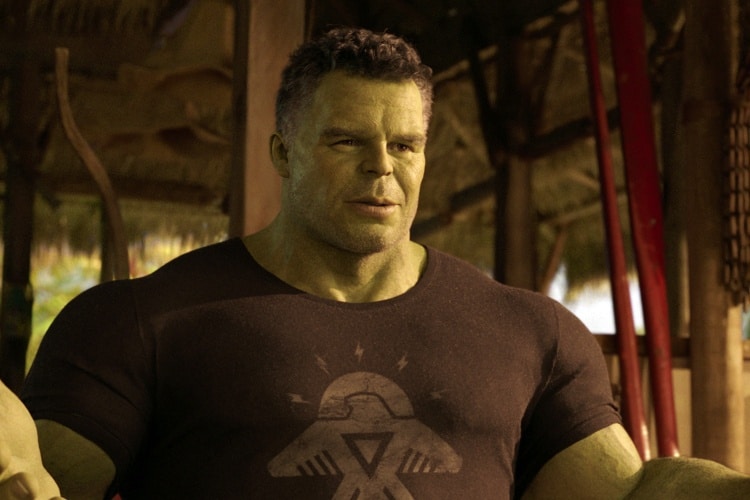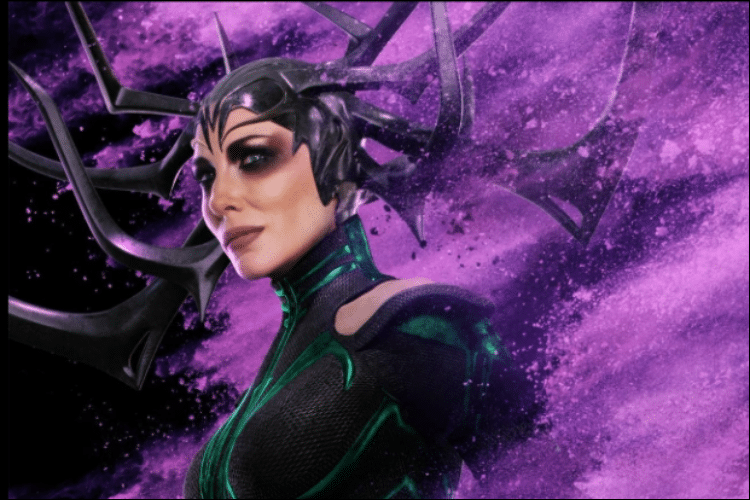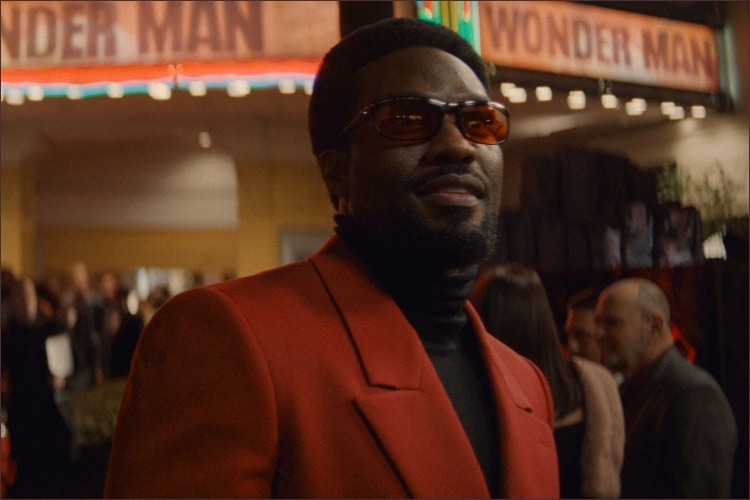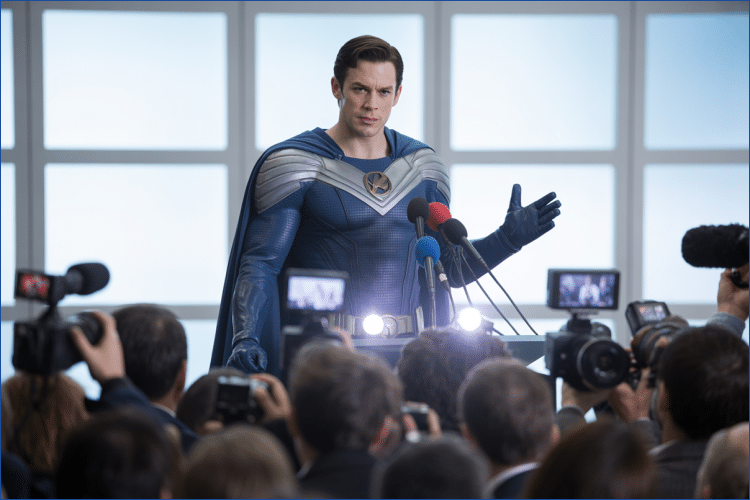Facing Shadows: 6 Heroes Navigating Mental Health Challenges
[An AI is confronting his creator]
Red vs Blue “Don’t Say It” (Season 10, Episode 22)
Epsilon: “Not all of us got off scot-free, Carolina!“
Epsilon-Delta: “He was brilliant…“
Epsilon-Theta: “and we trusted him...”
Epsilon-Gamma: “but he lied t-t-to us. He twisted and…“
Epsilon-Omega: “tortured us, and used us...”
Epsilon-Sigma: “manipulated us for his own evil purposes! And for what?! [gestures to a looping video of The Director’s dead fiance] For this?! This… shadow?!“
Epsilon: “He needs to pay.”
Mental health is just as important as physical health. Everyday life can be stressful enough, but the hellish 2020s have hammered all of us. Many don’t realize how much collective trauma we share from political unrest, gaslighting, a global pandemic, and simultaneous wars. This has led to more focus on mental health by media, including superheroes.
Superheroes have a problematic history with mental health. I’ve lost count of how many times I’ve written that someone snapped or went mad to describe them becoming a villain. Heroes often misunderstand the field or appear dismissive of it. The industry is slowly starting to course correct and examine mental health.
Almost every superhero develops some PTSD, but writers are exploring more conditions. So which heroes rise to the challenge? Let’s find out.
#6 Mental Health: Legion
Played By: Dan Stevens, Kyle Labine
Condition: Dissociative Identity Disorder (DID)
David: “You know, when a plate breaks, you don’t fix it. You just get another plate. So I tied a knot.”
Legion “Chapter One” (Season 1, Episode 1)
David Haller is Professor X’s son. His powers activated when he was a child and caught in a terror attack. The fear led him to telepathically murder the terrorists and absorb their leader’s mind. The trauma caused David to dissociate and create hundreds of alters. Each one has their own identity and superpower.
David is the dominant personality, often portrayed as naïve and sheltered. Other alters include the terrorist that David absorbed, coarse adventurer Jack Wayne, rebellious pyrokinetic Cyndi, a giant spider called The Weaver, and a manipulative alter called Styx. The most powerful Alter is The Legion, who can warp reality. Many call the plurality Legion as a catch-all, but David finds that offensive.
Legion got a signal boost a few years ago from a self-titled show. We’ve got the review right here.
#5 The Sentry
Played By: Steven Yeun
Conditions: Schizophrenia, Addiction, Agoraphobia, DID
The Sentry: “I can’t imagine the pressure you’re under, doctor, trying to keep me sane before I go off like so many nuclear bombs. Like a million exploding suns.”
The Sentry #4 (2005)
Many believe that someone with mental health issues is dangerous. They default to images of violent murderers like The Joker or Jason Voorhees. This isn’t true for most people, and those who do have those impulses can function fine with proper treatment and support. But what happens when someone lacks that support and has the power of a god?
Robert Reynolds was an everyman until he spontaneously remembered being The Sentry: Earth’s Greatest Hero. Everyone had forgotten about him. The Sentry also learned that his greatest enemy, The Void, was returning.
The Sentry found several holes in his memory, eventually discovering that he had false memories. Robert had a drug addiction, and broke into a lab looking get high. A serum he ingested gave him Superman-esque powers, which he accidentally used to destroy the lab and kill a friend. He blocked out the memories, believing that the destruction was caused by a villain called The Void.
The Sentry knew subconsciously that he was The Void and had everyone’s memories erased to contain himself. The erasure wouldn’t work a second time, so he had to cope with his murderous alter. The Sentry’s fear of losing control lead him to agoraphobia. The Void takes control on several occasions, killing an equal number of people that The Sentry has saved while embracing his darkest instincts.
#4 Mental Health: Saitama
Played By: Makoto Furuwaka, Max Mittelman
Conditions: Depression
Saitama: “Not again. All it took was one punch…! DAMN IT!“
One-Punch Man “The Strongest Man” (Season 1, Episode 1)
Mental health issues do not make someone weak. It’s often misconstrued that someone with a condition wouldn’t have it if they were better, like World War I-era soldiers who were branded cowards for suffering from PTSD. Physical strength has no bearing on mental conditions, even for this hero.
Saitama was a recently fired office worker. He became a superhero after saving a child from a monster. Saitama trained until he developed superhuman strength, speed, and durability. Unfortunately, he had trained too much. He was able to beat any opponent with a single half-hearted punch. Superheroics without any challenge were boring.
Saitama became distraught and apathetic, disinterestedly killing monsters while desperately wishing for a challenge. He was shaken from his rut while mentoring aspiring superhero Genos. The pair began facing bigger threats than single monsters, allowing Saitama to show off to his student and forget the missions’ relative ease.
You wouldn’t think Saitama is depressed at a glance. He seems straightforward, goofy, and disinterested in everything around him. Saitama only lets the mask down once, after defeating an alien with similar boring strength. Despite attempting to let the alien die happily, it could tell that he had barely tried. Saitama left the battlefield with the alien’s declaration that he was “way too strong” ringing in his ears.
#3 Green Lantern (Jessica Cruz)
Played by: Dascha Polanco, Jeannie Tirado, Diane Guerrero
Conditions: Anxiety, Agoraphobia, Survivor’s Guilt, Panic Attacks
[a room shrinks to crush the heroes]
Justice League/RWBY: Superheroes and Huntsmen Part One
Green Lantern: “Jaune, the walls!”
Jaune: “I see them.”
GL: “Jaune… [starts hyperventilating] JAUNE!”
Jaune: “You can get us out of this.”
GL: “No, no, I can’t! I can’t tap into my power here! I thought I was over my anxiety! I thought I had it under control!”
Jaune: “Hey! Sometimes there are flare-ups. It’s normal, but you are more than your fear. You are more than that ring!”
Mental health issues can come from anywhere. The most narratively useful source is when a character has been pushed too far, forced to endure events that leave hidden scars. This hero learned that lesson the hard way.
Jessica Cruz was a college student hiking with her friends. They discovered mobsters burying a body. Jessica’s friends were killed, and she barely escaped. The attack left her constantly afraid and unwilling to leave home.
Jessica’s anxiety was a beacon for Volthoom’s Ring, an artifact that gave Green Lantern-esque powers to the fearful. It tortured her into becoming the new Power Ring, but the Justice League’s support allowed Jessica to face her fear and usurp the ring’s powers. She became a hero and joined the Justice League to help others.
Volthoom’s Ring was eventually destroyed, but Jessica was inducted into the Green Lantern Corps. She often worried that her anxiety made her unworthy of the new ring and the League. She briefly wielded The Phantom Ring, which judged her to determine which powers of the Emotional Spectrum fit best. It settled on Will, definitively proving to Jessica that she had always been courageous at heart.
#2 Mental Health: Deadpool
Played By: Ryan Reynolds
Condition: Schizophrenia, ADHD, DID, Depression, more
Deadpool: “Hmmm…how much C4 is this gonna take?“
Deadpool (PS4)
White Text Box: “No more than 20 ounces.“
Yellow Text Box: “What?! I hate the metric system! How much in American?!“
White Text Box: “Well let’s see, uh…carry the seven…“
Deadpool: “Dude, fuck math! Just use all of it!“
Mental health is difficult to joke about. It’s very easy to use stereotypes as punchlines. This superhero has made it his bit and usually succeeds. Sometimes. Well, he tries at least.
Wade Wilson was a mercenary who learned that he had cancer. He signed on for a super soldier program in hope of a cure. Wade didn’t know that he would be experimented on by Weapon X, tortured in an attempt to create Mutant super soldiers. The procedures gave him superhuman regeneration. He escaped, destroyed the facility, and became the Merc With a Mouth: Deadpool.
Deadpool’s powers are the source of his cornucopia of mental health issues. Cancer eats away at his body, which the healing factor immediately repairs. But that just gives the cancer more material, creating a supercharged feedback loop. The constant destruction and regeneration of Deadpool’s cells causes chronic, severe pain. Stress and the healing factor not being able to heal brain cells correctly warps his perception.
Want to know more about Deadpool? We’ve got his backstory right here.
#1 The Hulk
Played By: Mark Ruffalo, Bill Bixby, Lou Ferrigno, Edward Norton
Condition: DID
Devil Hulk: “I know you locked me away for years. I know I scare you. What I do. What I am. But before any of the others… I was there. Protecting you. I’ll always protect you. …’Cause I love you, you stupid kid. Somebody had to.”
Immortal Hulk #13
Mental health is a delicate subject. Few know how to properly assist those living with mental health challenges. Consequences from mistakes are upsetting at best and potentially dangerous at worst. Think carefully about making this hero angry. You wouldn’t like him when he’s angry.
Bruce Banner was a gifted child who excelled in science. His father, Brian, believed that both he and Bruce were possessed by monsters and abused his family to contain them. He even murdered his wife. Bottled rage, fear, and pain created a protective alter that embodied everything Bruce suppressed: The Hulk.
The Hulk became corporeal after Bruce was exposed to high levels of gamma radiation. The two personalities fought for control before forging an uneasy truce. Other alters learned to manifest, including street smart Joe Fix-it, reserved warrior Green Scar, and the murderously protective Devil Hulk.
There’s more to this big green rage monster than meets the eye. Hulk’s backstory has the details.
Which superhero with mental health issues do you like? Did we miss one? Tell us in the comments.
Image: Mark Ruffalo as Smart Hulk / Bruce Banner in Marvel Studios’ She-Hulk: Attorney at Law, exclusively on Disney+. Photo courtesy of Marvel Studios. ©Marvel Studios 2022. All Rights Reserved.

Jared Bounacos has written for Movie Rewind since 2016.





Leave a Reply